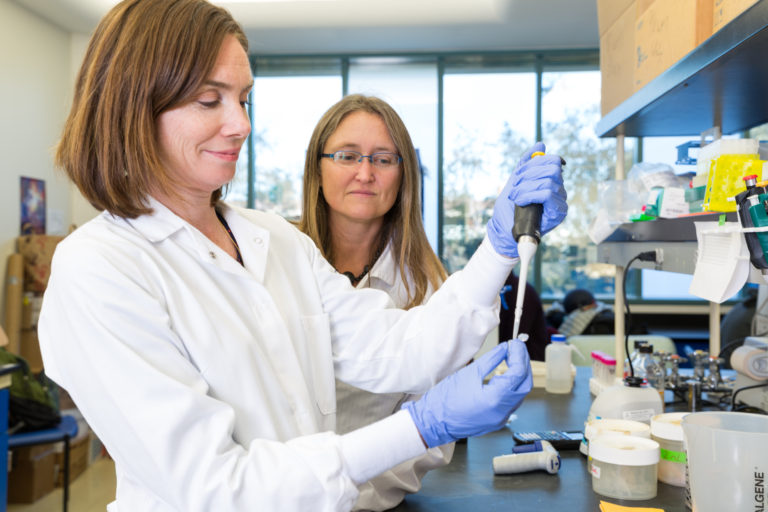Two University of California, Irvine (UCI), School of Bioscience faculty members have launched the Microbiome Centers Consortium (MCC). Jennifer Martiny, PhD, UCI professor of ecology and evolutionary biology and Katrine Whiteson, PhD, UCI assistant professor of molecular biology and biochemistry, co-authored a paper “The emergence of microbiome centers” online in Nature Microbiology describing the new organization and its mission.
“I noticed that microbiome centers were emerging at a fast pace and wanted to understand what their roles are and if there are similarities between them,” Martiny said. “I thought that if we could come together, we could pool concepts and strategies that would help all of us. We could begin to build an infrastructure for a life science that is expanding at an extraordinary pace. During the year of planning leading up to the MCC’s launch, the number of microbiome centers more than doubled, to more than 80.”
A primary purpose of the centers is to help researchers across scientific areas incorporate microbiomes into their work. With the demand growing, centers are finding it difficult to provide this service to all who need it, according to Martiny.
Many are also grappling with how to best train researchers at mid-career and beyond on the diverse range of microbiome science techniques, including study and experiment design, DNA sequencing, data analysis, and metabolomics, the large-scale investigation of small molecules known as metabolites.
The centers’ structure and funding are also challenging, the two professors said, because more than 85% of those on academic campuses rely on short-term internal financial sources and faculty who are contributing time voluntarily. While this approach suffices for starting a center, it is not feasible for sustaining it for the long run.
In June, the UCI Microbiome Initiative, of which Martiny is director and Whiteson is associate director, hosted more than 50 experts from 28 microbiome centers at the Beckman Center of the National Academies of Sciences & Engineering. The two-day event was funded by the National Science Foundation, the Office of Naval Research, the Gordon and Betty Moore Foundation, and UCI.
“It’s very exciting to learn from each other and share ways we can move this very dynamic scientific field forward to the benefit of all,” Whiteson said. “We are at the frontier of new questions and by coming together, we can develop the best answers. We are actively encouraging microbiome centers to join the network.”
Researchers and scientists from universities across the country and government agencies also contributed to the paper.



